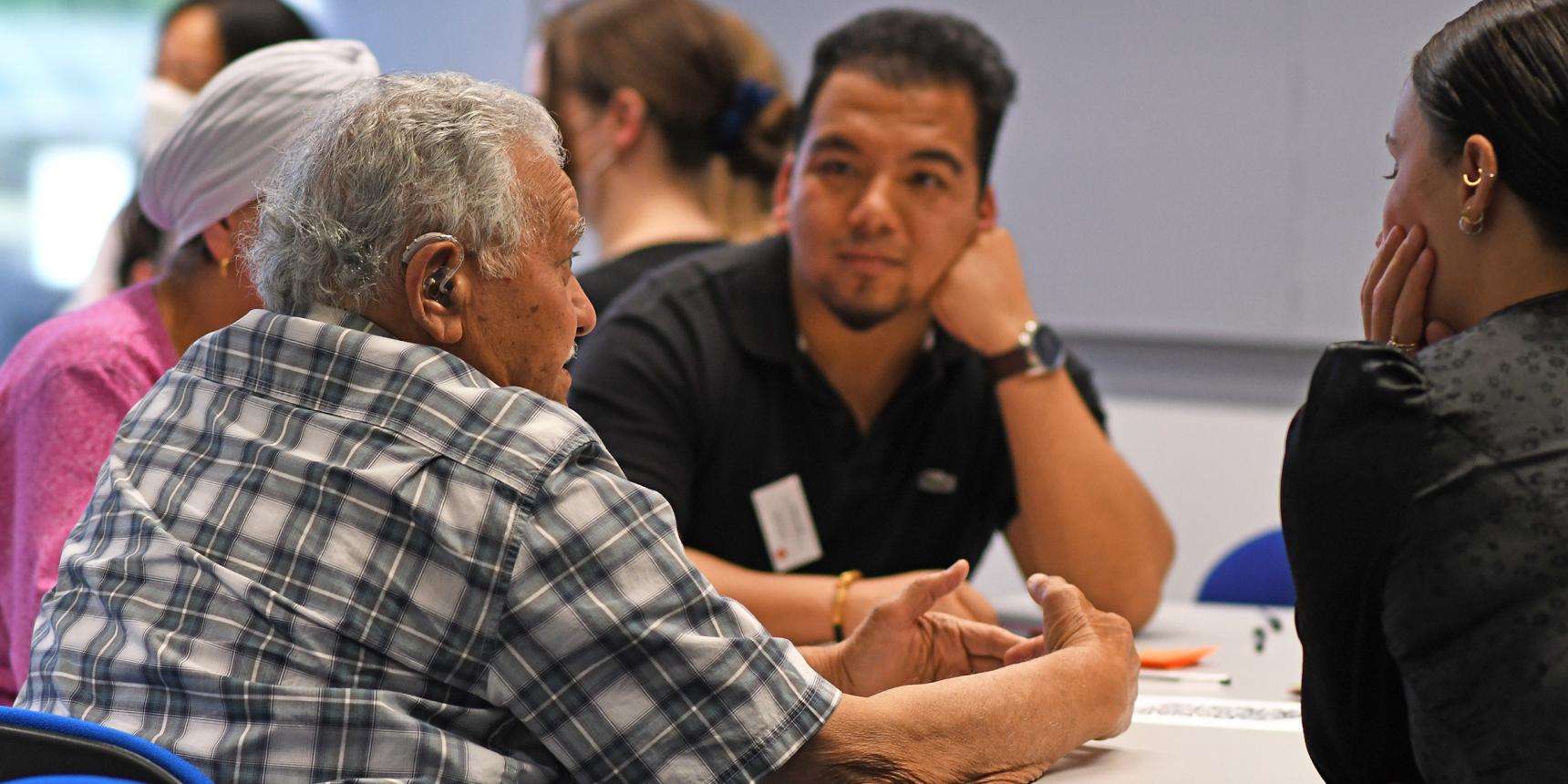Time for Dementia programme
Time for Dementia is an educational programme designed to help the healthcare professionals of the future be more aware of dementia.
What is Time for Dementia?
Time for Dementia is an educational programme designed to create a new generation of healthcare professionals who are more aware and understanding of dementia.
Transforming the way healthcare students learn about dementia, Time for Dementia offers an opportunity for a family, person with a diagnosis of dementia and a family member or carer, living with dementia to step into the future of healthcare education.
Designed in collaboration with Alzheimer’s Society and Brighton and Sussex Medical School (BSMS), and initially funded by Health Education England, Time for Dementia has been in operation since 2014.
The programme has now been integrated into 10 universities and a range of healthcare courses from medical and nursing to physiotherapy and dietetics. It has made a meaningful impact by working with more than 2,200 families and helping over 8,000 students to gain profound insights into dementia.
How does the Time for Dementia programme work?
Families living with dementia near participating universities, can experience Time for Dementia through in-person visits. Two dedicated students will visit the same family, in their own home, up to six times over two years.
The visits are a blend of informal interaction and personal connection, outside of a clinical setting, lasting 90 minutes each and spaced every three to four months. They provide an opportunity to delve into the daily realities of living with dementia.
If you do not live near a participating university, there may still be an opportunity to get involved. There could be a chance to connect with a group of compassionate students via a facilitated Zoom video call.

Time for Dementia participant talks to a healthcare student
Who can participate in Time for Dementia?
You don't need a memory assessment to become a part of this programme, only a diagnosis of dementia and a family member, friend or carer who can participate in each visit with you.
The Time for Dementia programme is open to all and we are always on the lookout for families living with dementia. Whether you're eager to take part or just want to learn more, we invite you to reach out to us by emailing [email protected] or calling us on 07562 430 204.
What are the benefits of taking part?
I feel that whatever we do or say, they will learn something from it, from me.
- Person with dementia
People living with dementia often tell us they feel really empowered when they get involved, and that it's rewarding for them to know they're making a difference.
Families also share how much they appreciate the chance to make a positive impact and enjoy connecting with their paired students from the comfort of their homes.
Time for Dementia visits can help with:
- developing confidence
- building new skills
- opportunities to learn more about dementia
- sharing knowledge
- feeling valued
Time for Dementia lets trainee healthcare students learn directly from the real experts on dementia: those who live with it every day. The informal nature of these visits offers students a truly one-of-a-kind chance to connect with families and humanise dementia, often challenging their previous thoughts of the condition.
Findings from the Time for Dementia Research carried out by Brighton and Sussex Medical School show that students not only gain a better understanding of dementia but also a deeper awareness of the carer's role.
Students also mention a remarkable boost in confidence, especially when it comes to effective communication and taking a person-centered approach to care.
What students pick up during these visits is something that can't be found in a lecture or a textbook. It's about sitting on the sofa with the family and hearing their first-hand experiences of living with dementia.
Meeting real people and hearing their stories had really helped me to understand the reality of dementia over and above the textbook medical definitions.
- Student participant
What are our future plans?
Our ambition is that every healthcare professional in the country should have the knowledge and skills to provide high-quality, person centred care for people living with dementia.
Dementia is devastating lives and with the number of people living with dementia predicted to rise sharply, more people in the field of healthcare need to have a better understanding of the condition.
It’s not just about the medical side of getting a diagnosis; it’s about helping students to understand the bigger picture and the wider implications for me and my wife.
- Carer of person living with dementia
We're always looking for families affected by dementia who want to participate. If you want to learn more about implementing Time for Dementia within your university or training course, please get in touch.
Contact us
To take part or learn more about Time for Dementia, please get in touch by email or phone or follow us @Time4Dementia.


